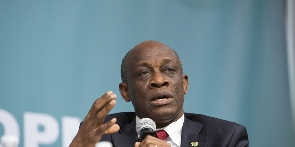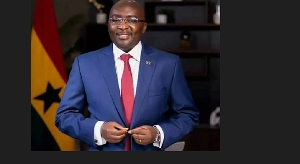Regional News of Wednesday, 29 November 2006
Source: GNA
The disabled need separate budgetary allocation - Gender Officer
Tamale, Nov. 29, GNA - A Gender Programme Officer of the Action on Disability and Development (ADD), an NGO, has called on the government to recognise persons with disability as a distinct group when making budgetary allocations.
Miss Augustina Naami said persons with disability (PWD) had specific needs and peculiar situations, which needed to be researched, assessed and addressed separately rather than grouping them with others.
"Disability policies or mainstream interface tools will not be effective if they are designed entirely by non-disabled persons", she said, adding that the disabled themselves must be the main advisers to issues affecting their overall development.
Miss Naami made the call when she presented a paper on: "The 2007 Annual Budget: Its impact on the vulnerable, especially women and PWD", at a public forum in Tamale.
She said it was important for the government to engage with the disability movements in the consultation processes to provide advice and evidence for their needs before the formulation of any budget.
The Integrated Social Development Centre (ISODEC), an NGO, organised the forum to deepen the knowledge and understanding of the public on the 2007 budget, and its impact on the lives of the people.
A cross-section of the public including, civil society organisations, heads of government departments and agencies, the academia, entrepreneurs and traders associations in the Tamale Metropolis attended the forum.
Miss Naami noted that all poverty reduction initiatives that did not consider the rights, needs, and capabilities of disabled persons could not be very effective.
She said even though the 2007 budget had some activities outline for the vulnerable and excluded, there was still great deal of work to be done for persons with disability.
"It is evident from the 2007 budget that apart from the Special Education and the National Council on PWD, all other strategies outlined to address issues on vulnerable group, did not clearly state the needs of PWD", she said.
Miss Naami said this was so because most of the strategies outlined in the budget were based on economic growth and trade.
The Gender Officer noted that a strategy based on economic growth and trade would not be widely beneficial to PWD, who through discriminatory processes had been largely excluded from the labour market.
She said the issue of disability needed inter-sectoral and multi-disciplinary approach and that government should therefore be seen talking about mainstreaming disability in every development process.
"How many of the infrastructural development projects mentioned in the budget, from the provision of water and sanitation, through housing and transportation to educational and recreational facilities, would be physically accessible to the mobility impaired at their completion" she wondered.
She also wanted to know how accessible would information and communication be at centres of learning, health and public speaking, to the deaf and the blind in 2007 and how many disabled persons would access jobs and micro-credits.










